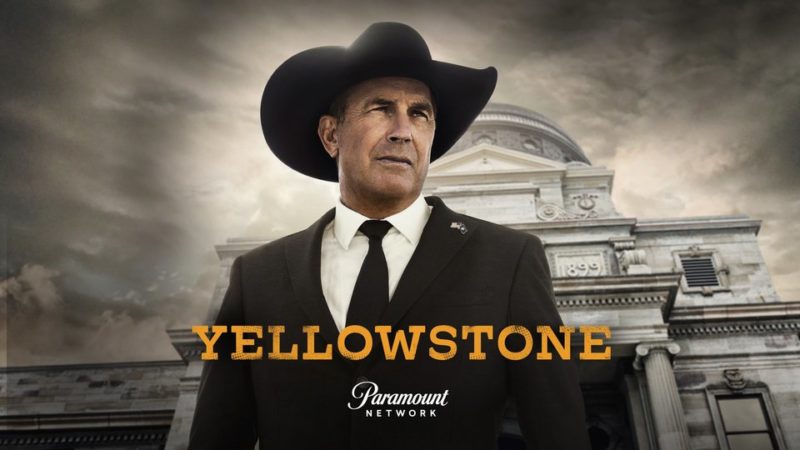In view of the younger demographic that contributes to modern popular television shows thriving, it would make sense that—as I’m a part of that Generation Z population—shows these days tend to follow a specific formula. Most of the cast is centered around an academic setting, whether it’s high school or college. The dialogue is witty in nature, and has a progressive, snarky (stereotypical) edge to it. With releases like HBO Max’s Euphoria and Netflix’s Wednesday dominating the scenes, I was rather surprised when I came across Yellowstone. I was expecting to hate it, but as the saying goes, always expect the unexpected. Yellowstone is a bingeable, dramatic show, and I love everything about it.
The show takes place in modern day times in Montana. The main character—John Dutton (played by McFarland USA champion Kevin McCarthy)—is a wealthy ranch owner, and the premise basically entails his daily life and explores the influence the Dutton family has on the Yellowstone reservation, as well as the state of Montana. John has three children—Beth, Jamie, and Kayce—who also feature as focal points of the series. The Duttons were once a family of six, but John’s wife Evelyn and son Lee are figments of memory as the episodes in the first season progress. Yellowstone handles dysfunctional family dynamics really well, making the show interesting and entertaining but also sadly accurate. John’s children—after losing their mother at a young age and falling victim to the tough and rigid way of parenting John took on—have a surplus of family-stemmed issues, and most of this first season is deconstruction of that and them trying to move past it. Beth has problems with smoking and alcohol addiction, and she’s put through numerous trials and tribulations throughout the season. She’s a good representation of someone who’s trying to pick together the pieces of a mirror that’s been shattered, putting them into place where she knows they belong even though they won’t ever restore the mirror to its original condition. Jamie was always the least favorite child, John choosing to pay attention to Lee or Kayce over him. He learns to stand on his own and be independent, and teaches John that consistency only remains as long as someone feels respected enough to be that way. Kayce is a father to Tate, his about 6 year old son, and husband to Monica Dutton, who happens to live on the Yellowstone reservation with her indigenous family members. Kayce’s dilemmas are a great way of showing the effects of colonialism on indigenous people to this day. Even though he cares for Monica and Tate, there will always be a sense of animosity since he is from a rich, white family, and his wife grew up on the reservation.
The reason I particularly loved the first season of this show was because it still manages to keep a western, traditional feel while maintaining some dramatism. Television shows—while some are there to make you stop and think—are primarily meant to be entertaining. There’s a reason everyone loves Keeping up with the Kardashians so much: it’s entertainment. Yellowstone is a piece of television that always keeps you on your toes and on the edge of your seat. Episodes have a bingeable nature to them, and the storylines are always consistent. Introductions of new characters feel smooth and natural, and more often than not the new characters always have some sort of connection to each other and something to offer the storyline. One thing the show does really well is it makes you enjoy it, almost like the writers are expecting you to be in opposition of it at first. There is a traditional, patriarchal undertone that runs amongst most interactions of the characters, but the action, drama, and incredible cinematography grabs your attention, and soon you’ll become invested. There were never parts of the season that felt repetitive or boring—everything moved a mile a minute—and the history behind the Dutton family and behind the families on the reservation was developed really well. The writers of the show knew how to introduce plot devices without too many loopholes and make it sustainable enough to continue on through other seasons without the public opinion being tired of it. The conjunction of writing, cinematic shots, and fantastic acting makes Yellowstone a show I’m glad I finally got to.
Growing up on Long Island, New York, life in Montana isn’t something I’m entirely familiar with. We tend to stay within realms of familiarity, reaching for more urban-based shows. Yellowstone is incredibly rural, and tends to veer in the opposite direction of shows I normally watch. Despite this, I was hooked with the interesting premise, the beautiful way the staff has merged writing with gorgeous shots of the rural countryside, and the attention to detail as far as acting goes. Not to mention, the show covers important issues while finding it easy to bring a factor of entertainment to the table. Yellowstone is more than just about the reservation itself, and I hope everyone has it in them to at least try the first episode.
